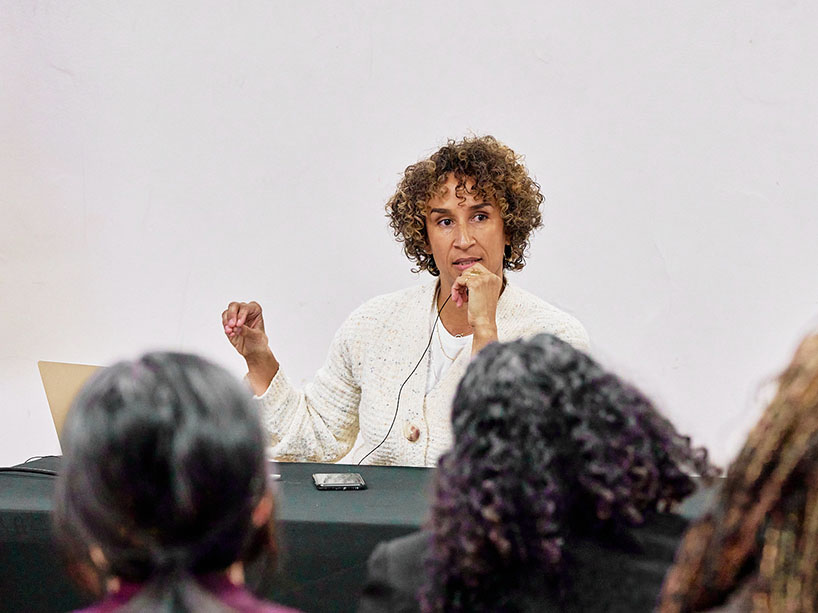Teens build PCs at TMU – and go home with special surprise
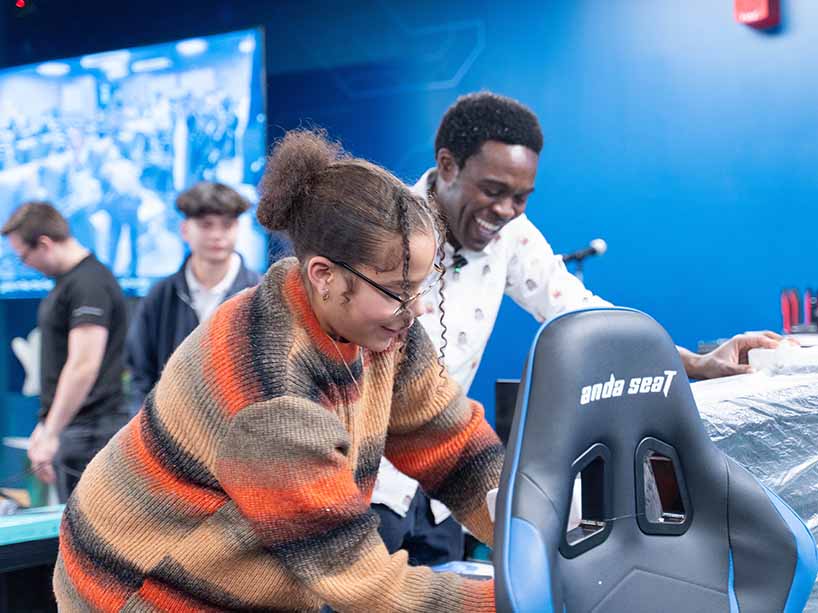
Kris Alexander, right, director of the Red Bull Gaming Hub at The Creative School and TMU professor specializing in video games and esports, says giving teens the chance to learn how to build computers can be life changing. (Photo: Jaye Huynh)
It’s not every day that teens get to level up their tech skills with the best minds in the business.
It’s even rarer to have the chance to build their own computers – and get to take them home.
But that’s exactly what happened to 12 lucky – and unsuspecting – high school students at a recent workshop at The Creative School at Toronto Metropolitan University (TMU).
The event took place at TMU’s Red Bull Gaming Hub, a state-of-the-art, high performance lab equipped and designed to empower students, encourage innovation and promote growth in video game design, production and broadcasting.
The workshop was led by Kris Alexander, director of the Red Bull Gaming Hub and a professor specializing in video games and esports. Geoffrey Lachapelle, manager of the lab, also rolled up his sleeves to support.
It was all made possible thanks to a partnership with the Red Bull Gaming Hub, Just BGRAPHIC, the Toronto District School Board, AMD and Canada Computers.
Participants were selected for the workshop by an arts education organization in Toronto that has been working with Just BGRAPHIC.
The students were chosen based on their talent and aptitude in STEAM (Science, Technology, Engineering, the Arts and Mathematics – formerly STEM) programs, and in some cases, socio-economic factors.
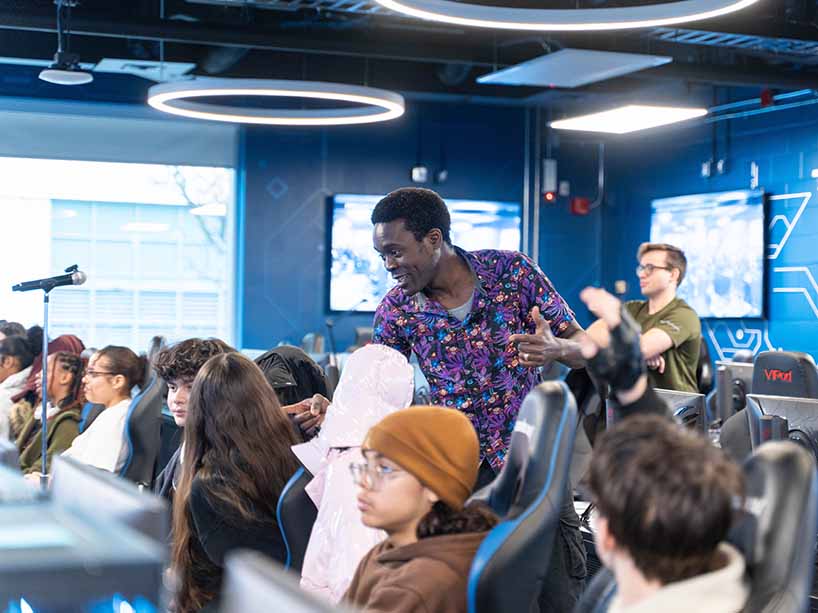
The PC building workshop, led by Prof. Kris Alexander, above, centre, connected what students learn in school with real-life skills. (Photo: Jaye Huynh)
Surprise revealed at end of workshop
The purpose of the workshop was to teach students how to build a PC to the specifications of a client, and learn the core skills of building and maintaining a computer.
What students didn’t know was that the computers they were building were their own.
Toward the end of the workshop, Alexander revealed the news that the students could take the computers home.
“They were shocked. Some even asked, ‘For real?’”, Alexander said. “It was spectacular. The whole time I had kept on referring to ‘the client’ who was to eventually receive the machines.”
Alexander added that he even pretended that the client was waiting outside, and told students he was texting the client to come in – before revealing the big surprise.
“I built my first computer when I was 14, and it helped me learn that one key element of technological fluency, just like with any other strength, is understanding the process,” he said.
“This skill ended up helping me help my family financially, and help me understand how to use the process to provide for my loved ones. That was the true strength of this program,” Alexander continued.
He added that it had been “a dream” to pass the skills on to students who were at the same age as he was when he first learned how to build a computer.
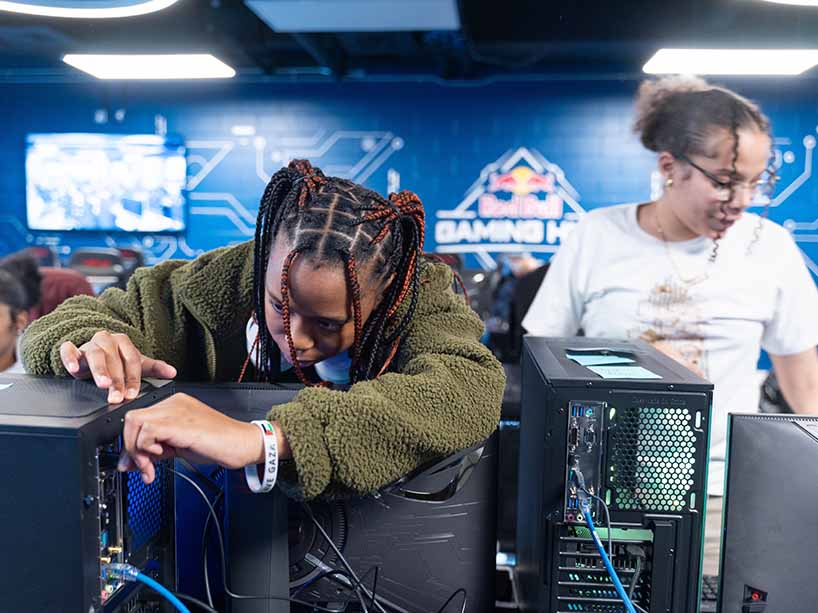
Computer-based competencies are a fundamental skill, says Geoffrey Lachapelle, manager of Red Bull Gaming Hub. (Photo: Jaye Huynh)
Activating real-life skills
The workshop was designed to connect what students learn in school with real-life skills, and be both practical and fun. Students were encouraged to use their creativity and express themselves along with applying practical learnings.
Lachapelle expanded further on why the skills learned are so valuable.
“At the core of all STEAM learning is the operation and maintenance of computers. Ultimately, from fabrication to arts to game development and IT service, among many more fields, computer-based competencies are a fundamental skill,” he said.
“This workshop not only gave students the chance to build their own PCs, it empowered them for the future,” added Alexander.
To gain additional insights into the workshop, see the images below.
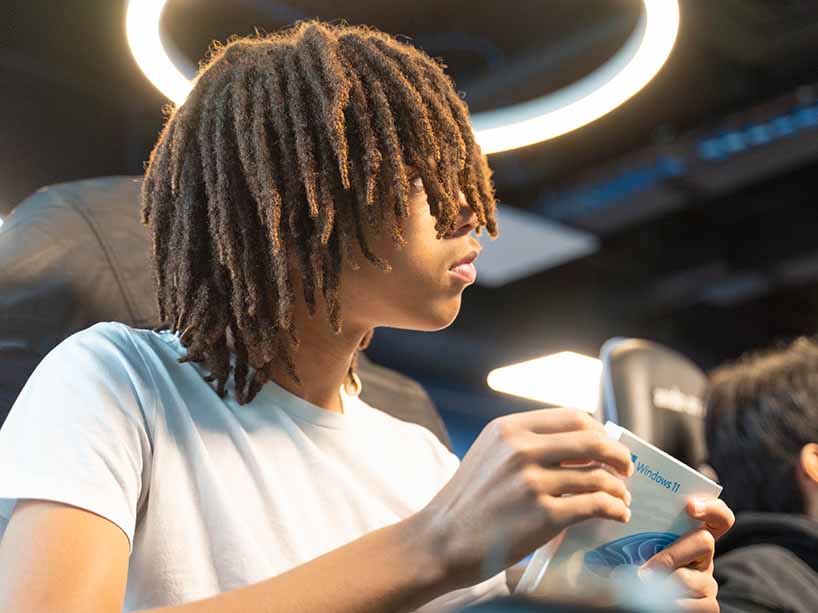
12 students were selected for the workshop based on their skills and talent in STEAM areas. (Photo: Jaye Huynh)
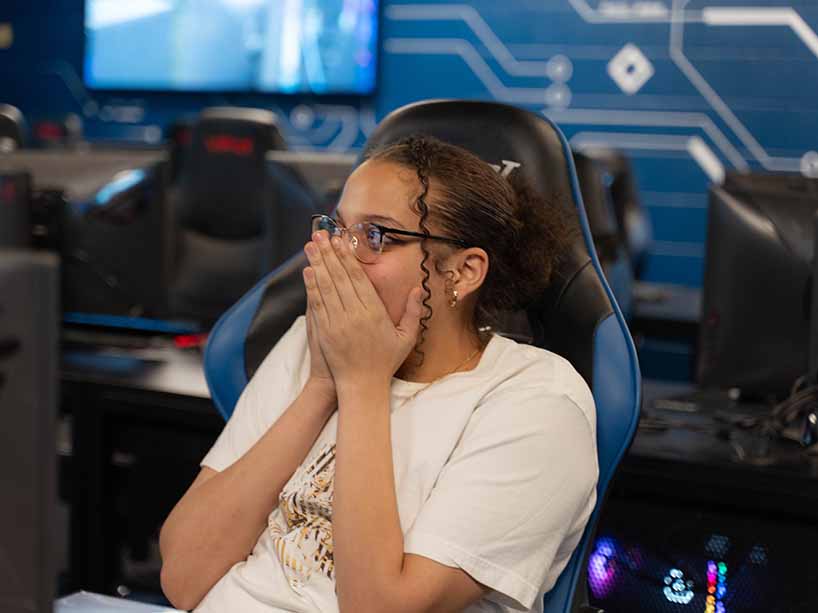
Students were excited to learn about a website called Cameo, where people are hired to do voiceovers. (Photo: Jaye Huynh)
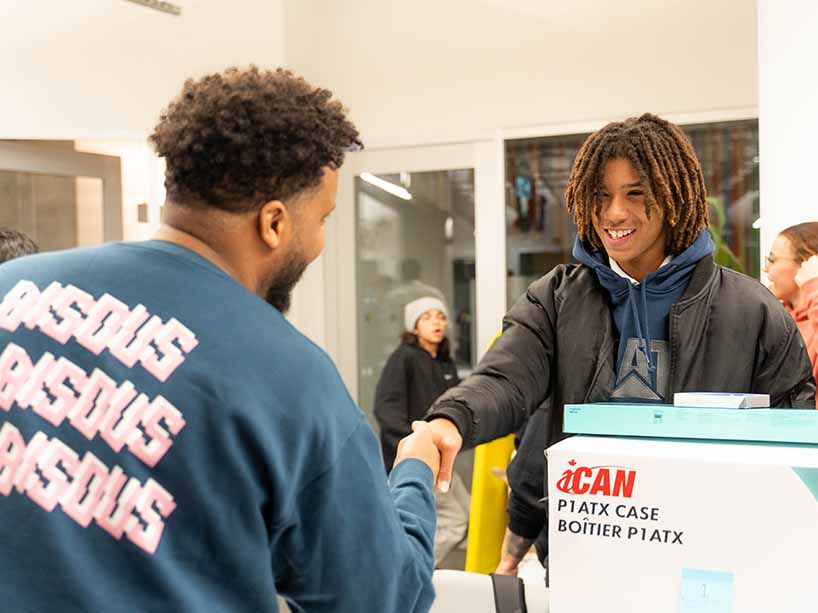
A student from the workshop is happy to learn the surprise - that students could take one of the computers home. (Photo: Jaye Huynh)





